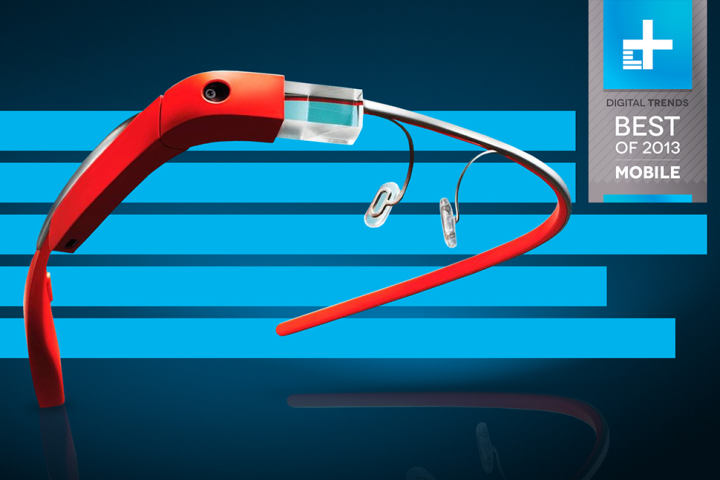
It’s the end of the year, and that means as the Mobile Editor at DT, I am tasked with picking the single most notable product in my space. It’s no small task. The term “mobile” encompasses apps, games, smartphones, tablets, phablets, ebook readers, smartwatches, and all kinds of new wearable tech, so the choice wasn’t easy. I’ve wondered, should I pick a phone, like the Moto X? Or maybe a new app, like the home screen replacement, Aviate? The Pebble is certainly a top contender, being the first smartwatch to get people excited, and likely still the best selling. But in the end there’s only one new product that grabbed headlines by pushing boundaries in 2013, and that’s Google Glass.
Though it’s still $1,500 and only available as a developer unit, Google Glass is the only product that makes sense to pick as product of the year. Because, frankly, we can’t stop talking about it. Google announced Glass in 2012, but 2013 was the year when people started using them and things began to get crazy. I was reticent about Glass earlier this year, but at Google I/O in May, I spent a few days crammed into a convention center with more than a thousand Glassers. Though downtown San Francisco crawled with eyewear for those days, no fights broke out, and no one got hit by cars (at least, not because of Glass). At the time, we were worried about the privacy implications of everyone having a camera on their face, but after I/O, I realized that society will adapt just fine.
Google Glass has upset more than a few people though. Nary a week goes by without some sort of Google Glass controversy. Either a bar will ban it, a government will consider outlawing it on the road, or some guy will try to re-enter that bar that banned it and start some crap with the staff. And when we aren’t talking about the privacy implications, Google is releasing new versions of it, new firmware updates, or new apps that work with it. Though it’s not out at all yet, Google Glass has already evolved a few times and continues to get better.
Then there are people trying to push the limits. Chris Barrett and others took Glass into casinos, surgery, Starbucks, department stores, and just about anywhere they could to see how people would react. And Google itself has taken Glass on tour, showing it off on news stations and to the public.
There’s no way to say if Google Glass will take off or not, but I cannot think of another single product that has continued to garner the kind of attention that Glass has outside of the iPhone or iPad. The big question for 2014 will be whether anyone’s actually willing to pay for this thing – not as a developer unit, or as a concept, but on a store shelf. Even if they don’t buy Glass, though, there are already dozens of competitors in the works. We’re going to try out eyewear as a society, and we can thank (or hate) Google for that.
Editors' Recommendations
- Best smartwatch deals: Samsung, Google, Apple, Fitbit, and Garmin
- Best Google Pixel 8 Pro deals: Save $1,000 on the best Pixel phone
- Google is launching a powerful new AI app for your Android phone
- The best smartphone case brands in 2023: the 20 best ones
- Apple’s AR glasses ‘now appear many years away,’ report says

